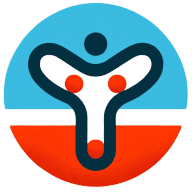How Can You Address Medication Adherence in Elderly Patients With Endocrine Disorders?
Managing medication adherence in elderly patients with endocrine disorders presents a unique challenge to medical professionals. This article explores the first insight of combating hormone myths in seniors and concludes with the importance of collaborating with pharmacists regularly. With a total of seven valuable insights, readers are provided with strategies to improve medication adherence and patient outcomes.
- Combat Hormone Myths in Seniors
- Integrate Medications Into Daily Routines
- Simplify Medication Regimens
- Use Reminder Tools for Medication
- Provide Clear Medication Counseling
- Address Side Effects Proactively
- Collaborate with Pharmacists Regularly
Combat Hormone Myths in Seniors
The key is combating the myth that hormones are a young person's problem. As medical professionals, we've done a great job highlighting the effect of hormones during a single stage in one's life: adolescence.
Unfortunately, this is sometimes to the detriment of other life stages. The result is that seniors don't necessarily take endocrine disorders seriously. This is especially true if they suffer from other ailments simultaneously.
Focusing on the role hormones play in multiple aspects of the body throughout life gives elderly patients a better perspective on the importance of medication adherence. Go back to the beginning and let them know that hormones do far more than simply jump-start puberty, and they'll be more likely to follow medical recommendations.

Integrate Medications Into Daily Routines
One way I handle medication adherence in elderly patients with endocrine disorders is by weaving it into their everyday routines. Instead of overwhelming them with strict reminders, I like to suggest pairing their medication times with something they already do, like having breakfast or their afternoon tea. This way, taking medicine doesn't feel like a separate task but becomes part of their day without much effort. What's important is keeping the process as simple and natural as possible, especially as circumstances and health needs shift. It's less about forcing a system and more about working with them to find what fits best into their current life.
Another method that has worked is involving family members or close friends in the process. I find it helps when a caregiver is not just a reminder but part of the experience, like going for a walk or sitting together when it's time for medications. This makes it a more shared responsibility and helps patients feel supported. Keeping open conversations about why they're taking the meds and how it helps them goes a long way in staying consistent. It turns what can feel like a burden into something more manageable and even connected to their relationships

Simplify Medication Regimens
To ensure elderly patients with endocrine disorders follow their medication, simplifying the medication regimen can be very helpful. A less complex regimen makes it easier for patients to understand and remember. When medications are straightforward and require fewer steps, there is a higher likelihood of adherence.
This approach can also reduce the chance of errors. Healthcare providers must work on developing simpler medication plans. Encourage doctors to review and simplify patients' prescriptions today.
Use Reminder Tools for Medication
Medication adherence in elderly patients can be improved by using reminder tools such as pillboxes or alarms. These tools serve as prompts to take the medication at the right times and in the correct dosages. This method can help patients who have difficulty keeping track of their medications.
It provides structure and ease in medication management. Ensure that these tools are user-friendly for elderly patients. Recommend the use of these reminder tools to support them in following their medication schedules.
Provide Clear Medication Counseling
Providing clear and concise counseling sessions about medications can greatly support adherence in elderly patients with endocrine disorders. During these sessions, healthcare professionals can explain the importance of each medication, how it should be taken, and what effects to expect. When patients understand their treatment, they are more likely to follow through correctly.
This creates a sense of trust and clarity. Organize informative counseling sessions that empower patients to take control of their health regime.
Address Side Effects Proactively
Another way to address medication adherence is by proactively addressing potential side effects and concerns of the elderly patients. By discussing side effects upfront, caregivers can alleviate fears and provide strategies to manage any issues. This proactive approach helps in preventing patients from discontinuing their medications due to unexpected adverse reactions.
It also reassures patients that they have support. Facilitate open discussions about medication concerns to foster greater adherence.
Collaborate with Pharmacists Regularly
Collaboration with pharmacists for regular medication reviews and support can significantly improve adherence among elderly patients with endocrine disorders. Pharmacists can offer valuable insights into medication management, especially when considering interactions between different drugs and patient-specific factors. Through regular consultation, they can ensure that the patients’ medication regimens remain appropriate and effective over time.
This ongoing support can also help in updating prescriptions as needed. Promote regular pharmacist consultations to maintain effective medication management.

